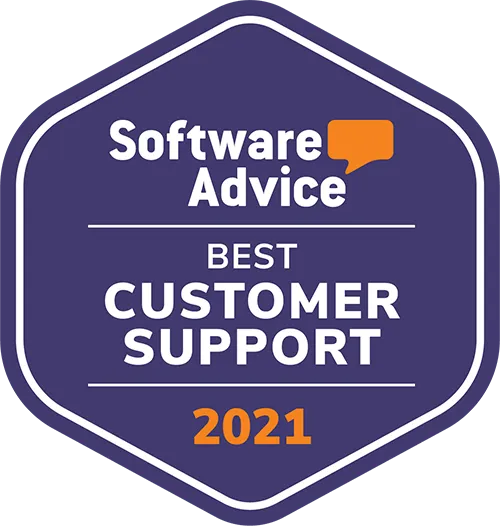It wasn’t a hard choice to select SmartSurvey. Not only did they understand what we were looking to achieve right from the start, they presented a solution that represented everything we needed.
Types of Survey Questions
Types of Survey Questions

When creating a survey, you’ll find there are many ways to frame the survey questions you’ll include in the questionnaire, with each having their own uses, advantages and potential shortcomings. Don’t be overwhelmed. Read our guide to common question types so you can deploy the styles that will best capture meaningful feedback.
- Open questions
- Closed questions
- Multiple choice
- Likert scale
- Rating questions
- Ranking questions
- Matrix questions
- Demographic questions
- Dichotomous questions
- Hypothetical questions
- Follow-up questions
Question types for your next survey

Open questions
Open questions are those that invite a participant to answer in their own words, opening up a conversation and capturing greater detail, by providing more information than a simple yes or no answer. Open-ended questions are great for qualitative research, and when used in a questionnaire are typically answered using text boxes. Example open questions:
How do you like to spend your free time?
If you could improve one thing about our product, what would you change?
What matters most to you in the workplace?
Closed questions
Closed questions give the respondent a limited amount of options to choose from, inviting a simple, often one-word answer. They are great for collecting quantitative data and are popular in surveys, as quantitative data is easier to analyse than qualitative data. There are a few versions of close-ended questions, from dichotomous (e.g. yes or no) to multiple choice, with each having advantages and best use cases. Example closed questions:
Did you achieve what you came here to do today?
Do you prefer working on solo or team tasks?
How often do you go to a restaurant? Weekly, monthly, yearly, less than yearly, never.
Multiple choice
Multiple choice questions are one of the most fundamental question types in a questionnaire, presenting respondents with either single select options or multi-select options (where more than one answer can be chosen from a list). Age range would be an example of single select whilst picking from a list of foods might be multi-select, should more than one response apply. Example multiple choice questions:
How many devices do you use to browse the internet? 1 | 2 | 3+
Which of these have you visited in the last month (tick all that apply): Cinema | Restaurant | Leisure centre | Gallery | Concert venue
Have you visited a dentist in the past 12 months? Yes | No
Likert scale
Likert scale questions capture respondents’ opinions – specifically the extent to which they agree or disagree with a statement. Often based on a 5, 7 or even 10-point scale, responses might range from “strongly agree” to “strongly disagree”, or “very satisfied” to “very unsatisfied” (see also: semantic differential question). To ensure that those without an opinion are not forced to respond inaccurately, a neutral mid-point choice is also typically included, such as “neither agree nor disagree”. Example Likert scale questions:
How satisfied are you with your physical workspace?
How likely are you to buy from us again?
How important was parking in your decision to attend?
Rating questions
Rating questions are used to enable a comparison of different research items (such as product or service features) using a consistent scale. Participants might be asked to rate a series of choices on a rating scale (say 1-5) where 1 = ‘Not at all important’ and 5 = ‘Very important’.
There are a variety of scales these questions can use such as numbers, frequency (daily to annually, never to always), comparative weighting, stars, ‘smiley’ emojis, hearts and more. Example rating questions:
Out of 5, how would you rate our delivery service?
How many stars would you give the training course overall?
How important is dress code in your choice of employer?
Ranking questions
Ranking questions ask respondents to indicate their preferences between a list of research subjects (such as product attributes, packaging designs, or holiday destinations), to identify which are the most and least favoured. As few as two choices might be presented, whilst a neutral/don’t know answer may or may not be included.
Ranking questions are useful for finding out what customers want, and work well in conjunction with rating scale questions. Example ranking questions:
Which of the following bolt-ons would be the most influential in your choice of service provider?
Which of these follow-up sessions would be of the most benefit to you? Please rank from most to least beneficial.
Which of the following product features, in ranked order, do you use most frequently?
Matrix questions
Matrix questions are closed-ended (limited set of answers) and present respondents with a number of questions laid out in rows but using the same selection of column choices.
Checkboxes are typically used, with users selecting one option per row, for example a rating scale from “very poor” to “excellent”, with each row using that same scale. Example matrix question:
Following your recent exhibition visit, please rate your levels of happiness with each of these criteria:

Demographics
Demographic questions are those that look to categorise the identity of the survey participants based on factors such as their age, gender, ethnicity, marital status, household income, employment, education level and location.
Capturing this information allows a better understanding of how respondents fit into the general population. Some demographic questions can be sensitive, however, and so need to be asked with care. Example demographic question:
What is your marital status?
Single | Married or domestic partnership | Widowed | Divorced | Separated
Dichotomous questions
Dichotomous questions are commonly used to elicit a Yes or No, Agree or Disagree, or True or False response. By offering two possible answers they are a useful way to clarify opinions and understanding, and to direct participants to relevant next questions. But they should also be used with care to avoid frustration or compromised results. Dichotomous question examples:
Are you planning an overseas holiday in the next 12 months? Yes | No
I understand the relationship between my Q4 sales target and bonus payment: Agree | Disagree
Did you find what you were looking for on this web page? Yes | No
Hypothetical questions
Hypothetical questions are those based on an imagined situation rather than facts or actual experience. As such they can be used to capture participants’ opinions and beliefs about something that hasn’t happened, but could. The survey must set the parameters or criteria for the scenario being explored.
Hypothetical questions assume certain conditions exist (experience, understanding, opinions) and so can be problematic. one of the least used types of questions in a questionnaire, hypotheticals are generally avoided. If used, they should be implemented with great care. Example hypothetical questions:
How would you approach a task that made you dissatisfied with your job?
If you could have any product feature that doesn’t currently exist what would it be?
If our keynote speaker were to talk on a topic of your choice, what subject area would they cover?
Follow-up questions
Follow-up questions are those that are asked in response to a participant's initial answer, seeking to clarify, elaborate, or delve deeper into their response. These questions are crucial for uncovering additional insights that the initial question may not have fully captured. By probing further, follow-up questions help to reveal the reasons behind opinions, behaviours, and experiences, providing richer and more nuanced data.
Follow-up questions require careful crafting to ensure they are relevant, non-leading, and easy for participants to understand. While they add significant value by offering deeper insights, poorly designed follow-up questions can lead to survey fatigue or skewed data. Therefore, they should be used thoughtfully and selectively. Example follow-up questions:
Can you explain what led to your dissatisfaction with our service?
What specific features did you find most useful in our product?
Could you provide more details about your experience at the event?
How are we different?
UK based
Your data will be stored and processed here in the UK for your peace of mind.
Fanatical support
We pride ourselves on going above and beyond for our customers, providing expert advice and support whenever you need it.
You're in safe hands
Our secure platform and robust data protection measures ensure your data is safe and secure with us. We are ISO27001 and Cyber Essentials Plus certified.
We're human
We understand the importance of personal interaction, which is why we offer a human touch alongside our cutting-edge technology.
Accessibility matters
We're committed to making our surveys accessible to everyone, with a range of features to support those with disabilities.
Unlimited responses
With no limits on the number of responses you can collect, you can be sure your survey will reach as many people as possible without it being cost prohibitive.

Don’t just take our word for it
Over 500,000 users have registered to use SmartSurvey.


We couldn't be happier with SmartSurvey, we love its functionality and flexibility. This means we have been able to use one survey tool across many parts of the business.








Get in touch
We are ISO27001 certified, registered under the Data Protection Act and fully compliant with EU Privacy Laws.
Access to a knowledgeable account manager for personal assistance for when you most need it.
Our friendly design team is on hand to assist with any bespoke design and custom development requests.
We succeed if you succeed. Our goal is to help you carry out effective research and we’re here to help you achieve that.
